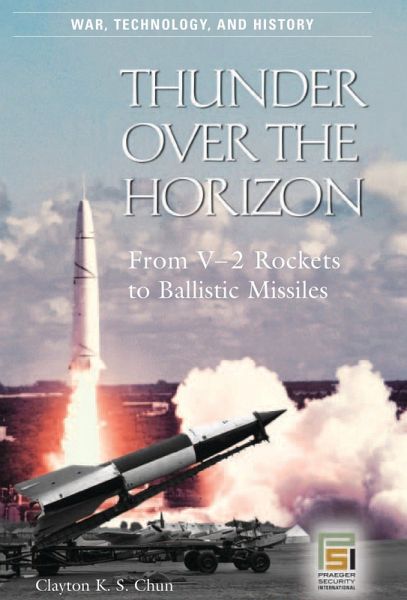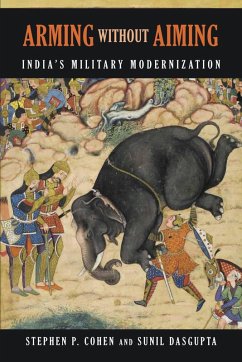
Thunder over the Horizon (eBook, PDF)
From V-2 Rockets to Ballistic Missiles
Versandkostenfrei!
Sofort per Download lieferbar
40,95 €
inkl. MwSt.
Weitere Ausgaben:

PAYBACK Punkte
20 °P sammeln!
In this general history of the development of rockets and missiles, Chun traces the technology that made attack from beyond the horizon possible. A former missile launch officer, he focusess not only on the development and employment of the ballistic missile-from early German V-2 use to today-but on their subsequent impact on national strategies, doctrine, force structure, and politics. The development of ballistic missiles and nuclear warheads had a profound impact on superpower rivalries and structured international relations for decades. The advent of the ballistic missile changed the way n...
In this general history of the development of rockets and missiles, Chun traces the technology that made attack from beyond the horizon possible. A former missile launch officer, he focusess not only on the development and employment of the ballistic missile-from early German V-2 use to today-but on their subsequent impact on national strategies, doctrine, force structure, and politics. The development of ballistic missiles and nuclear warheads had a profound impact on superpower rivalries and structured international relations for decades. The advent of the ballistic missile changed the way nations believed war was to be fought in the future. Ballistic missiles (land based and submarine-launched) are now global in scope. Accordingly, the book covers Russia, China, North Korea, South Asia, and the Middle East. It details actual use in combat, as well as current countermeasures and future missile defense systems. In this general history of the development of rockets and missiles, Chun traces the technology that made attack from beyond the horizon possible. A former missile launch officer, he focuses not only on the development and employment of the ballistic missile-from early German V-2 use to today-but on their subsequent impact on national strategies, doctrine, force structure, and politics. The development of ballistic missiles and nuclear warheads had a profound impact on superpower rivalries and structured international relations for decades. The advent of the ballistic missile changed the way nations believed war was to be fought in the future. Ballistic missiles (land based and submarine-launched) are now global in scope. Accordingly, the book covers Russia, China, North Korea, South Asia, and the Middle East. It details actual use in combat, as well as current countermeasures and future missile defense systems. The ballistic missile is still a relevant weapon system. Advancements in miniaturization, spread of technology, availability of weapons of mass destruction, desire to gain strategic advantage among rivals, and other concerns have stimulated the growth of interested parties that either have or are able to build ballistic missiles. Tracing the development and issues regarding such missiles serves as a primer on these complex systems, and explains why international parties are still concerned about their proliferation.













